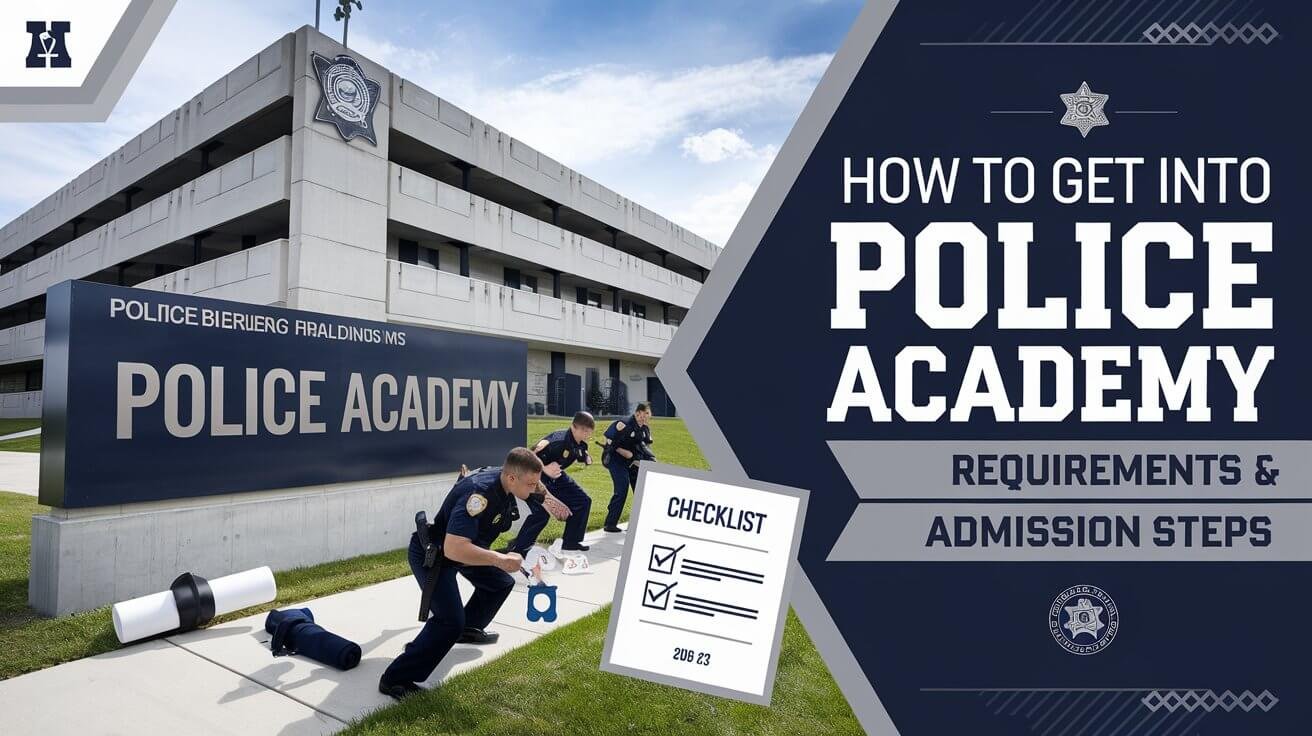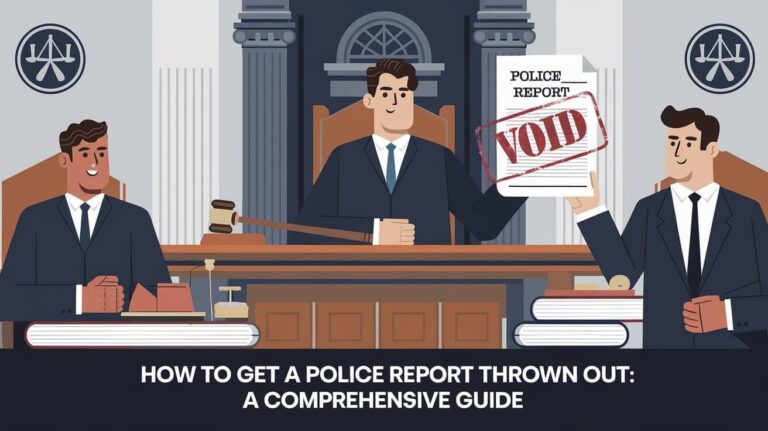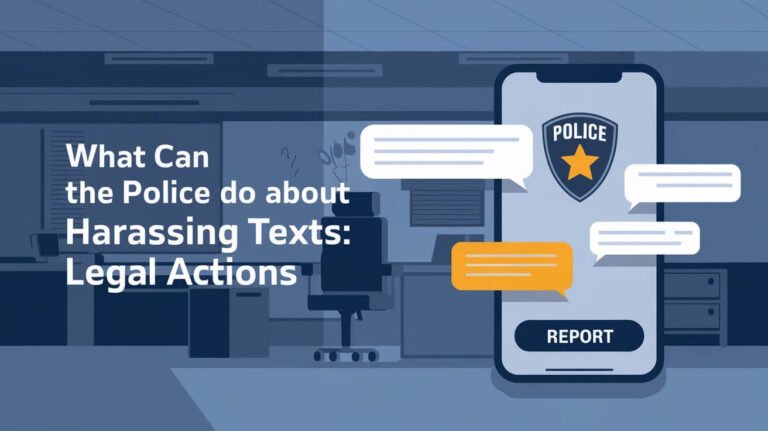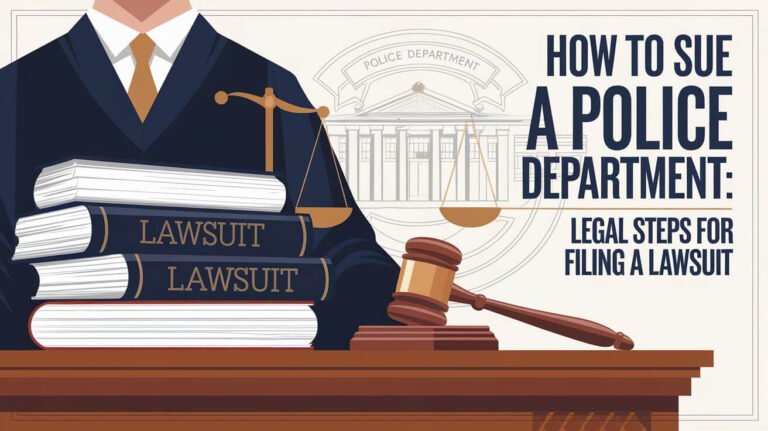How To Get Into Police Academy: Requirements & Admission Steps

Ever thought about joining law enforcement? Becoming a police officer is tough, but the benefits are huge. Are you ready to start a career in public service? Let’s look at what you need to do to get into the police academy and become a community protector.
Police Academy Training Standards and Basic Course Overview
The POST-certified Regular Basic Course is the standard for police officers in the U.S. It includes at least 664 hours of learning in 42 areas. But, most academies add 200 hours or more, making sure officers are well-prepared.
POST-Certified Regular Basic Course Components
The Regular Basic Course covers many subjects. These include:
- Criminal law and procedures
- Firearms training and qualification
- Emergency vehicle operations
- Defensive tactics and use of force
- Interpersonal communication and crisis intervention
- Traffic enforcement and collision investigation
- Investigative procedures and report writing
Training Hours and Course Duration
The police officer training lasts about six months. It includes 800 to 1,000 hours of training. The course can be full-time or part-time, depending on the academy and recruits’ needs.
Academy Format Options
POST-certified basic training academies offer different formats. You can choose the Standard Format or the Modular Format. You can also pick full-time or part-time training, based on your schedule and personal life.
Essential Education Requirements for Police Academy Candidates
To become a police officer, you need to meet certain education standards. You must have at least a high school diploma or GED. Many police forces also want applicants with some college education.
Studying subjects like criminology, legal studies, sociology, and psychology can help. These studies give you a better understanding of the law, human behavior, and how to communicate well.
- Percentage of police departments preferring or requiring post-secondary education: Many police departments prefer or require post-secondary education in addition to a high school diploma.
- Percentage of police officers with college degrees: Some police departments offer incentives for officers with a college degree, meaning a percentage of police officers have college education.
- Percentage of applicants taking a Basic Abilities Test in Florida: Police applicants in Florida may be required to take a Basic Abilities Test.
Applicants also face screenings and tests. These include background checks, medical exams, and psychological assessments. These steps make sure candidates are ready for the demands of law enforcement.
Basic Eligibility Criteria and Legal Requirements
To join the police academy, you must meet certain requirements. You need to be at least 21 years old, have a valid driver’s license, and be a U.S. citizen. A detailed background check also checks your moral character and legal history.
Age and Citizenship Requirements
For a career in law enforcement, you must be 21 by graduation time. You also need to be a U.S. citizen, allowed to work here by federal law.
Background Check Specifications
A thorough background check is key. You must not have any felony convictions. You can’t have domestic violence, misdemeanor, or DWI convictions in the last few years.
Legal History Qualifications
To get into the police academy, your legal history matters a lot. You can’t have convictions that stop you from carrying a gun or being a peace officer.
How To Get Into Police Academy – Application Process
Those wanting to become police officers must go through a detailed application process. First, they need to pass the POST Reading/Writing Test and the Physical Agility Exam. These tests check their academic and physical abilities, which are key for getting in.
After passing these tests, candidates can start the formal application process. They must provide medical clearance, proof of insurance, a DMV report, and DOJ Firearms Clearance. Then, they submit their scores on the Basic Police Academy Pre-Registration Form.
The application process is tough to make sure only the best join law enforcement. By meeting strict criteria and passing exams, hopeful officers show they’re ready to uphold the profession’s high standards.
Physical Fitness Standards and Testing
Police officers need to be in top shape to join the academy. They must pass a physical agility exam and a Work Sample Test Battery at the end of their training.
The physical agility exam checks a candidate’s strength, endurance, and physical skills. It includes sprinting, climbing, lifting, and obstacle courses. They must show they can do these tasks quickly and well.
Work Sample Test Battery Requirements
The Work Sample Test Battery is the last test at the police academy. It tests real-world skills officers might face. It checks muscular strength, endurance, cardiovascular fitness, and flexibility.
This test has exercises like a 1.5-mile run, push-ups, sit-ups, and a 300-meter sprint. Candidates must meet certain standards in each to pass and graduate.
Physical Agility Exam Components
- 1.5-mile run
- Push-ups
- Sit-ups
- Vertical jump
- 300-meter sprint
- Handgrip strength
The police fitness test and physical agility exam ensure candidates are fit for law enforcement. Being in shape is key for officer safety and community well-being.
| Age Group | Sit-ups (1 min) | Push-ups | 1.5-mile Run |
|---|---|---|---|
| Men 20-29 | 32 (entry), 40 (exit) | 19 (entry), 33 (exit) | 14:34 (entry), 11:58 (exit) |
| Women 20-29 | 23 (entry), 35 (exit) | 9 (entry), 18 (exit) | 17:49 (entry), 14:07 (exit) |
Academic Testing and Written Examination Requirements
Aspiring police officers must show their academic skills and problem-solving abilities. They must pass the POST Reading/Writing Test. This test checks their understanding, analysis, and communication skills.
During police academy training, students take many written exams. These exams cover 42 Learning Domains. They include law enforcement principles, procedures, and techniques. These tests make sure cadets know the skills needed to serve their communities well.
- The New York State Police Entrance Examination has 150 multiple-choice questions and lasts two hours.
- The physical ability test (PAT) checks candidates in three physical tests. These tests are pass-fail.
- Candidate processing happens four to six months before the Academy class starts.
Meeting the academic and written exam requirements shows a police officer’s dedication and intelligence. It shows they are ready to uphold the law enforcement standards.
Medical and Psychological Evaluation Process
To become a police officer, you need more than just to be in shape. You also need to be mentally and emotionally strong. Aspiring officers must go through a detailed medical and psychological check. This ensures they can handle the job’s challenges.
Health Clearance Requirements
The medical check looks at your physical health. It checks if you can do the job’s essential tasks. This includes looking at your medical history, a physical exam, and tests.
The aim is to find any health issues that might affect your work. This is important for your safety and the public’s.
Psychological Assessment Criteria
Police candidates also face a tough psychological test. This checks their mental health, emotional balance, and if they’re suited for law enforcement. The test includes a clinical interview and various psychological tests.
These tests, like the Big Five Model, measure traits like being outgoing, agreeable, stable, responsible, and open. The psychological test is key in the selection process. It helps find any mental or emotional issues that could affect an officer’s judgment or public interaction.
The hiring committee carefully reviews the test results. They use this info to decide if the candidate is right for the job.
Core Curriculum and Learning Domains
The Basic Police Academy course is designed to prepare future law enforcement officers. It covers essential principles, procedures, and techniques. The training includes many important areas, such as Criminal Law and Patrol Procedures.
It also covers Cultural Diversity, Investigative Procedures, and Report Writing. Cadets learn Defensive Tactics, Firearms, and Leadership. They also study Ethics, Community Policing, and Police Vehicle Operations.
There are 42 Learning Domains at the heart of police officer training. These domains ensure cadets gain a broad set of skills and knowledge. Academy staff show what is expected of students, like ethical behavior and communication skills.
The Police Training Program (PTP) lasts 15 weeks. It includes one week of integration and 12 weeks of training in four phases. The last two weeks are for evaluation. The training focuses on three levels: knowledge, application, and evaluation.






